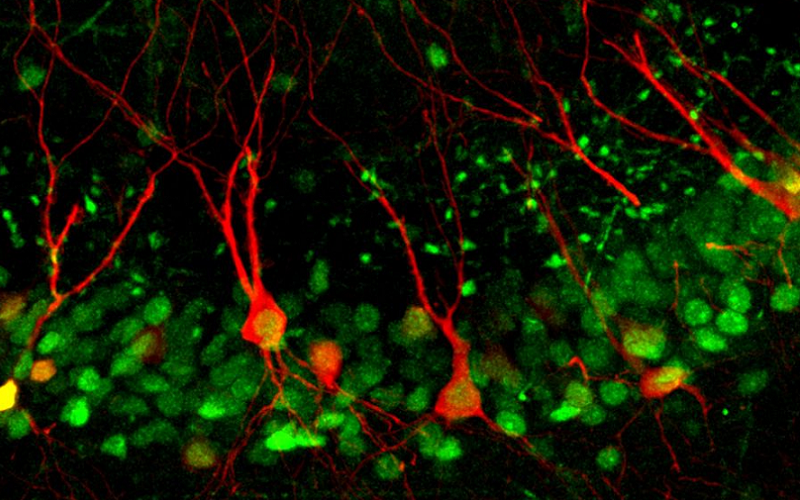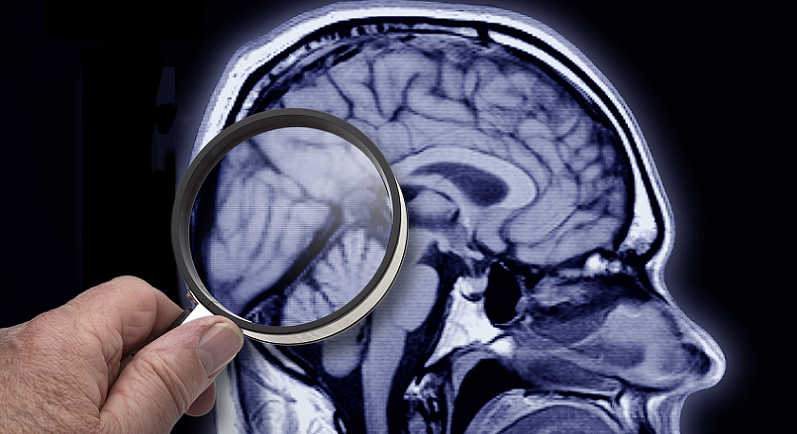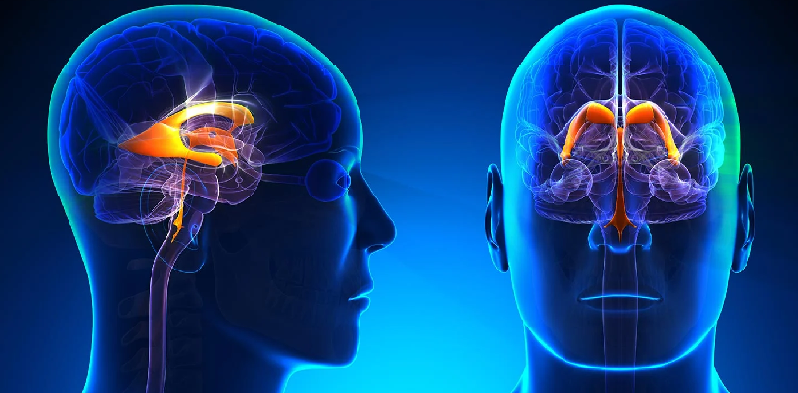
In the intricate tapestry of the human brain, the hippocampus stands out as a vital protagonist in the drama of memory. This small, seahorse-shaped region, nestled deep within the brain’s temporal lobe, plays a pivotal role in how we form, store, and retrieve memories — the very essence of our past experiences and the scaffold of our identity. From the encoding of fresh experiences to the consolidation of long-term memories, the hippocampus is a key player in the cognitive processes that define our understanding of the world.
The hippocampus significance extends beyond mere memory storage — it is a critical hub in the network of cognitive health, influencing everything from spatial navigation to emotional responses. Its function and health are of paramount importance, particularly as we navigate the challenges posed by neurodegenerative diseases and memory disorders.
Contents
Anatomy of the Hippocampus
The hippocampus, a small yet crucial part of the human brain, is renowned for its distinctive shape and critical role in memory processes. Situated within the brain’s temporal lobe, this structure is more than just an anatomical marvel; it is a cornerstone in the foundation of our cognitive abilities.
Hippocampus Location in the Brain
Nestled within the medial temporal lobe of the brain, the hippocampus plays a central role in memory and spatial navigation. Its unique position allows it to interact seamlessly with various other parts of the brain, enabling the complex process of memory formation and retrieval.
Structural Components of the Hippocampus
The hippocampus is not a uniform structure; rather, it is a composition of several interconnected parts, each contributing uniquely to its overall function.
Dentate Gyrus
The Dentate Gyrus acts as the entry point for neural information into the hippocampus. It is primarily involved in the early stages of memory formation, playing a crucial role in the processing and integration of new information.
Cornu Ammonis Regions (CA1, CA2, CA3, and CA4)
The Cornu Ammonis regions, often abbreviated as CA1, CA2, CA3, and CA4, are named for their resemblance to the horns of Ammon, an ancient Egyptian deity. These regions are critical in the processes of encoding, consolidating, and retrieving memories. Each area has its specific role, with CA1, for example, being particularly important in the transfer of information from short-term to long-term memory.
Subiculum
The Subiculum serves as the final output region of the hippocampus. It acts as a bridge, transmitting information from the hippocampus to various other brain regions, thereby playing a vital role in the consolidation and retrieval of long-term memories.
Connectivity of the Hippocampus with Other Brain Regions
The hippocampus is not an isolated entity; it is deeply integrated with various other parts of the brain. This connectivity is essential for its role in memory and cognition. The entorhinal cortex, for example, serves as a major input and output channel for the hippocampus, linking it to other cortical areas. This interconnectivity ensures that the hippocampus can effectively coordinate the complex process of memory formation and retrieval with other cognitive functions [1].

The Hippocampus and Memory Formation
The hippocampus is a linchpin in the brain’s memory system. It is not just a passive storage unit but an active processor that plays a dynamic role in the formation of memories. Understanding how the hippocampus contributes to memory formation involves delving into the types of memories it handles and the processes it employs.
Types of Memory
Memory is a multifaceted function, broadly categorized into different types, each with distinct characteristics and reliance on the hippocampus.
Declarative vs. Non-Declarative Memory
Declarative memory, involving facts and events, heavily relies on the hippocampus. This type of memory allows us to recall specific details and events. In contrast, non-declarative memory, which includes skills and habits, is less dependent on the hippocampus and more on other brain regions like the basal ganglia and cerebellum.
Short-Term vs. Long-Term Memory
The hippocampus is crucial in transitioning memories from short-term to long-term storage. Short-term memories, fleeting and temporary, are initially processed in the hippocampus before being consolidated into long-term memories, which are more stable and enduring.
Hippocampus Role in Encoding Memories
The hippocampus plays a crucial role in the encoding phase of memory formation. Encoding is the process of converting perceptions into memories. The hippocampus acts as a sort of ‘gateway’ through which new information passes, ensuring that it is adequately processed for storage as long-term memory [2].
Hippocampus Role in the Process of Memory Consolidation
Memory consolidation is a vital function of the hippocampus. This process involves the stabilization and gradual integration of new memories into the brain’s existing memory network. The hippocampus is central to this process, helping to reinforce and solidify these memories, making them less susceptible to forgetting.
The Hippocampus and Spatial Memory
One unique aspect of hippocampal function is its role in spatial memory. This involves the ability to navigate and understand spatial relationships in our environment. The hippocampus helps form cognitive maps, which are mental representations of physical spaces, crucial for spatial navigation and orientation.

The Hippocampus in Memory Retrieval
Memory retrieval, the process of recalling past experiences and information, is another critical function of the hippocampus. This complex process requires the hippocampus to interact with various parts of the brain, highlighting its importance in the broader network of memory and cognition.
Hippocampus and the Retrieval of Declarative Memories
The hippocampus is particularly vital in retrieving declarative memories, which encompass facts and personal experiences. When we recall a specific event or piece of information, the hippocampus is activated, helping to reconstruct the memory from its stored components. This process is not just a simple replay of stored data but an active reconstruction, making the hippocampus a key player in how we access and interpret our past experiences [3].
Hippocampus and Contextual and Spatial Memory Recall
In addition to factual information, the hippocampus is instrumental in recalling contextual and spatial details. This involves remembering the context in which a memory occurred, such as the location, environment, and emotional backdrop. For spatial memories, the hippocampus allows us to recall routes, locations, and spatial relationships, essential for navigation and understanding our environment.
Hippocampus Interaction with the Prefrontal Cortex
The hippocampus does not work in isolation during memory retrieval. It interacts closely with the prefrontal cortex, a region involved in higher cognitive functions like decision-making and problem-solving. This interaction is crucial for the integration of memories into our current thought processes and decisions, demonstrating how memory retrieval is not just about the past but also influences our present and future actions.
Hippocampal Malfunction and Memory Disorders
The hippocampus, vital for memory formation and retrieval, can be affected by various conditions, leading to memory disorders and cognitive impairments. Understanding how hippocampal malfunction contributes to these disorders is essential for both diagnosis and treatment.
Neurodegenerative Diseases and the Hippocampus
Neurodegenerative diseases often target the hippocampus, leading to significant memory and cognitive deficits.
Alzheimer’s Disease
Alzheimer’s disease, one of the most common forms of dementia, profoundly affects the hippocampus. Early in the disease, the hippocampus begins to atrophy, leading to the characteristic memory loss and disorientation seen in Alzheimer’s patients. This atrophy disrupts the hippocampus’s ability to form and retrieve memories, making it a central focus in understanding and treating this disease [4].
Other Forms of Dementia
Other forms of dementia, such as frontotemporal dementia and Lewy body dementia, also involve the hippocampus, though the patterns of impairment may differ from Alzheimer’s. Understanding these patterns is crucial for accurate diagnosis and tailored treatment approaches.
Amnesia and the Hippocampus
Amnesia, characterized by a loss of memories, can occur due to damage to the hippocampus. This damage can be the result of various causes, including traumatic brain injury, stroke, or infection. Depending on the extent and location of the damage, amnesia can range from mild memory lapses to severe memory loss, significantly impacting an individual’s daily life [5].
Impact of Stress and Depression on Hippocampal Function
Stress and depression have been shown to adversely affect the hippocampus. Chronic stress can lead to the release of hormones that may damage hippocampal cells, impairing memory formation and retrieval. Similarly, depression has been linked to changes in hippocampal volume and function, further highlighting the importance of mental health in maintaining cognitive health.
References
[1] The hippocampus plays a selective role in the retrieval of detailed context memories
[2] Neuroscientists identify brain circuit necessary for memory formation
[3] The hippocampus and memory: insights from spatial processing
[4] How memories are formed and retrieved by the brain revealed in a new study
[5] Hippocampal Engagement during Recall Depends on Memory Content

